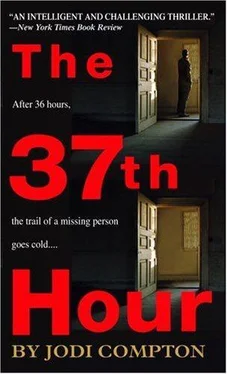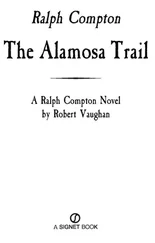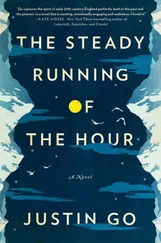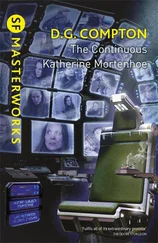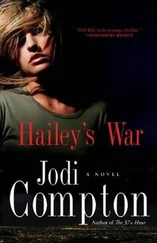All signs were pointing toward his having gone to the airport.
Had he left me a note and I simply hadn’t found it?
Shiloh had remarked once that our kitchen table was “a filing cabinet waiting to happen.” It was always overloaded with bills, papers, mail, newspapers, newsletters, notes to each other. It was a mess I now needed to sift through.
The newspapers were local, the Star Tribune and St. Paul’s Pioneer Press. Under that was the newsletter from the police union. A cadge letter from the Society for the Prevention of Cruelty to Animals: Shiloh gave them money from time to time. Here was the paperwork from the phone bill, with toll and long-distance calls itemized. A quick scan revealed all the numbers to be familiar, with none arousing my suspicions. A catalog from a gun dealer. A piece of cop junk mail: “… so revered, it’s used by the Israeli police…” A wrinkled white paper bag from a delicatessen, flat and empty: I remembered it from when I’d brought home dinner late about three weeks ago. A slip of paper with a phone number on it, but this time it was one I recognized: the local FBI field office.
The last item, the deepest archaeological layer, was two sheets of scratch paper, one with red wax drippings on it. That was from the dinner we’d had on our wedding night, two months ago. Shiloh had dug up a boxy red candle and lit it, an ironically celebratory gesture, with the sheets of paper set underneath to catch the melting wax.
There was no note.
I walked back to the entryway, the better to start my search from scratch. Honestly, I did not believe that Shiloh had been injured or killed here. Even so, I had to look around.
There were no pry marks on the front door. The lock appeared untampered with, and I couldn’t remember feeling anything wrong with it when I’d unlocked it.
I walked the perimeter of each room, looking at the windows for signs of a break-in. They showed none. The spaces behind the furniture showed nothing but dust bunnies. There was nothing valuable missing. Nothing cheap, either, from what I could tell. The shelves were as laden as ever with Shiloh’s books. I would never be able to tell if any of them was missing. Shiloh’s interests were extremely varied: fiction and nonfiction, Shakespeare, texts on investigation, a Bible, several slender volumes of poetry by authors I’d never heard of: Saunders Lewis, Sinclair Goldman.
There was nothing resembling dried blood or bloodstains anywhere.
The bedroom was tidy, although somewhat less so than Shiloh had left it-I hadn’t made the bed this morning when Vang had called me.
When kids disappear, I look under their beds early on. Children tend to think under the bed is a sly hiding place. Often, the girl’s diary is there. Adults use more care in hiding their valuables.
Even so, I sat on my heels and flipped up the blanket, which hung long from the rumpled surface of the mattress.
“Oh, no,” I said.
It wasn’t hidden, just sort of pushed out of the way for convenience’s sake. If I’d been looking down last night I’d have seen the dull gleam of light on black leather, just under the bed frame.
I jerked Shiloh’s timeworn hard-shell valise out. It was heavy. Obviously packed. I opened it. The shaving kit was inside the valise, the toothbrush in the kit. Shiloh had been efficient. He’d packed in advance, and then he’d put the valise where it would be out of his way, not underfoot in our narrow bedroom.
On top of the folded clothes was a paperback copy of a classic text on investigation, and inside that, like a bookmark, was a ticket for Northwest’s 2:35 P.M. flight to Washington, D.C.
He’d never even left for the airport. Somehow, that made it real.
I’m not sure how long I sat by the bed, not thinking but just internalizing. Some long moments passed and then I got up and walked back to the kitchen, to stand in the middle of Shiloh’s vacated home and life in Minneapolis.
A missing adult male. What would Genevieve and I look at first?
Money, we’d say. How were his finances? Bad enough to skip town? How was the relationship with the wife? Did he have a girlfriend on the side? Did he have a problem with alcohol or drugs? Could he be involved in criminal activity? Did he have a record? Associate with criminals? Did he have serious enemies? Who would benefit from his murder? Did we have a good idea of the location from which he’d disappeared? If not, what’s the house look like? And where’s the car?
It was a fertile field of questions. The problem was, I could sort through them in about a minute’s time.
Shiloh’s finances were my finances, and I knew they were fine.
The state of our marriage? Interviewing spouses had taught me that no other question was so fraught with the possibility of self-deception.
But Shiloh and I were good. We’d only been married two months. We’d really have had to put a lot of effort into screwing things up in such a short time.
We kept two Heinekens in the refrigerator in case of guests. Those two green bottles were still in their place, untouched. Lapsed though he was from his childhood religion, there were parts of Shiloh’s personality that approached the monastic. Though he drank when I first met him, he’d since completely quit, and as for drugs, I’d never seen him take anything stronger than aspirin.
A criminal record would have killed Shiloh’s chances with the FBI, and he’d passed their rigorous screening. He associated with criminals only as a detective who had the usual relationships with informants.
Enemies? I suppose Annelise Eliot, whom he’d caught after thirteen years of life as a fugitive, had reason to hate him. But everything I’d heard about the case suggested she’d directed her hostility to larger and more political targets, like the lawyers in California building their careers on her prosecution, whom she denounced in the media while proclaiming her innocence.
No one, that I could see, would benefit from Shiloh’s death.
The house wasn’t a plausible site for some kind of violent event. I’d already searched it and it was in order.
I chewed the end of my pencil.
Maybe I was going at this the wrong way. I was thinking of Shiloh impersonally, as a case. But I knew him, maybe better than anyone. It was, in a perverse way, an ideal situation.
What had he done, the day and a half that I’d been gone? He was leaving for Virginia soon. He’d packed, to be sure. Maybe run a load of laundry beforehand. And he’d gone out to get food, probably, because we tended to restock the refrigerator on a basis closer to daily than to weekly.
Shiloh habitually ran every day, so he’d probably gone out for one of the long runs he liked when I wasn’t at his side to quit after four miles. And what else? Maybe he’d read, maybe watched some basketball. He might have slept early, on a quiet Saturday night without his wife around.
It was a safe, sane, and boring course of events. None of those activities seemed to allow for Shiloh to simply disappear. Except…
A long-distance run had been, nominally, the most dangerous part of the routine I’d reconstructed for Saturday and Sunday. Mostly, people who ran never encountered more than an obnoxious dog, but there were exceptions. Runners took paths through quiet and dark places, away from city lights. Occasionally paramedics carried them from state parks and nature trails minus their cash, with head traumas or stab wounds. Shiloh, six-foot-two, young, and athletic, was the least likely of marks for a mugger, but it had been a theory that at least made some sense.
I went back to Shiloh’s valise and opened it. Thumbing through the clothes, I saw the gray-green of his Kalispell Search and Rescue T-shirt, the one he favored for running and basketball games. Squashed against the frame, wrapped in a plastic grocery bag to keep the soles from rubbing against the clothes, were Shiloh’s running shoes. He only had one pair.
Читать дальше
